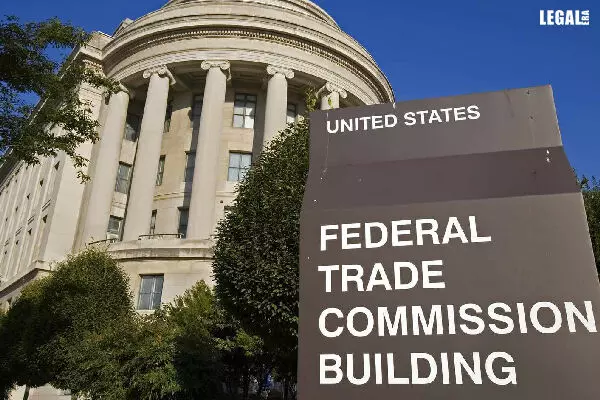- Home
- News
- Articles+
- Aerospace
- AI
- Agriculture
- Alternate Dispute Resolution
- Arbitration & Mediation
- Banking and Finance
- Bankruptcy
- Book Review
- Bribery & Corruption
- Commercial Litigation
- Competition Law
- Conference Reports
- Consumer Products
- Contract
- Corporate Governance
- Corporate Law
- Covid-19
- Cryptocurrency
- Cybersecurity
- Data Protection
- Defence
- Digital Economy
- E-commerce
- Employment Law
- Energy and Natural Resources
- Entertainment and Sports Law
- Environmental Law
- ESG
- FDI
- Food and Beverage
- Gaming
- Health Care
- IBC Diaries
- In Focus
- Inclusion & Diversity
- Insurance Law
- Intellectual Property
- International Law
- IP & Tech Era
- Know the Law
- Labour Laws
- Law & Policy and Regulation
- Litigation
- Litigation Funding
- Manufacturing
- Mergers & Acquisitions
- NFTs
- Privacy
- Private Equity
- Project Finance
- Real Estate
- Risk and Compliance
- Student Corner
- Take On Board
- Tax
- Technology Media and Telecom
- Tributes
- Viewpoint
- Zoom In
- Law Firms
- In-House
- Rankings
- E-Magazine
- Legal Era TV
- Events
- News
- Articles
- Aerospace
- AI
- Agriculture
- Alternate Dispute Resolution
- Arbitration & Mediation
- Banking and Finance
- Bankruptcy
- Book Review
- Bribery & Corruption
- Commercial Litigation
- Competition Law
- Conference Reports
- Consumer Products
- Contract
- Corporate Governance
- Corporate Law
- Covid-19
- Cryptocurrency
- Cybersecurity
- Data Protection
- Defence
- Digital Economy
- E-commerce
- Employment Law
- Energy and Natural Resources
- Entertainment and Sports Law
- Environmental Law
- ESG
- FDI
- Food and Beverage
- Gaming
- Health Care
- IBC Diaries
- In Focus
- Inclusion & Diversity
- Insurance Law
- Intellectual Property
- International Law
- IP & Tech Era
- Know the Law
- Labour Laws
- Law & Policy and Regulation
- Litigation
- Litigation Funding
- Manufacturing
- Mergers & Acquisitions
- NFTs
- Privacy
- Private Equity
- Project Finance
- Real Estate
- Risk and Compliance
- Student Corner
- Take On Board
- Tax
- Technology Media and Telecom
- Tributes
- Viewpoint
- Zoom In
- Law Firms
- In-House
- Rankings
- E-Magazine
- Legal Era TV
- Events
Major Win For Workers As US Federal Trade Commission Outlaws Most Non-Compete Agreements

Major Win For Workers As US Federal Trade Commission Outlaws Most Non-Compete Agreements
In a landmark decision, the US Federal Trade Commission (FTC) announced a nationwide ban on non-compete clauses in employment contracts. These clauses, often buried within employment agreements, restrict workers from taking jobs in a specific industry or with specific competitors after leaving their current position.
The new rule, initially proposed in January 2023, prohibits employers from entering into non-compete agreements with any worker on or after the rule's effective date. This effectively outlaws the practice for the vast majority of employees. However, a narrow exemption exists for senior executives. Defined as those earning more than $1,51,164 annually and holding key "policy-making positions," these executives can still be subject to existing non-compete clauses.
The FTC, established in 1914 alongside the Clayton Antitrust Act, aims to protect consumers and ensure fair competition between businesses. The agency cited Section 5 of the FTC Act, which prohibits "unfair methods of competition," as the legal basis for the new rule.
FTC Chair Lina Khan stated the rationale behind the ban. She argued that non-compete clauses suppress wages, stifle innovation, and hinder economic dynamism. She estimates the ban will lead to the creation of over 8,500 new businesses annually. More importantly, it grants American workers the freedom to pursue new opportunities, launch their ventures, and contribute their ideas to the marketplace without undue restrictions.
The rule also mandates that employers notify former employees that existing non-compete clauses in their contracts are now unenforceable. Notably, this ban does not affect non-disclosure agreements or trade secret laws. These measures remain in place to safeguard sensitive company information that an employee might have access to during their employment.
For years, critics have denounced non-compete clauses for limiting worker mobility and weakening their bargaining power in the job market. This issue has gained particular significance with the rise of the US gig economy, where many workers lack traditional employment contracts and already face greater uncertainty.


